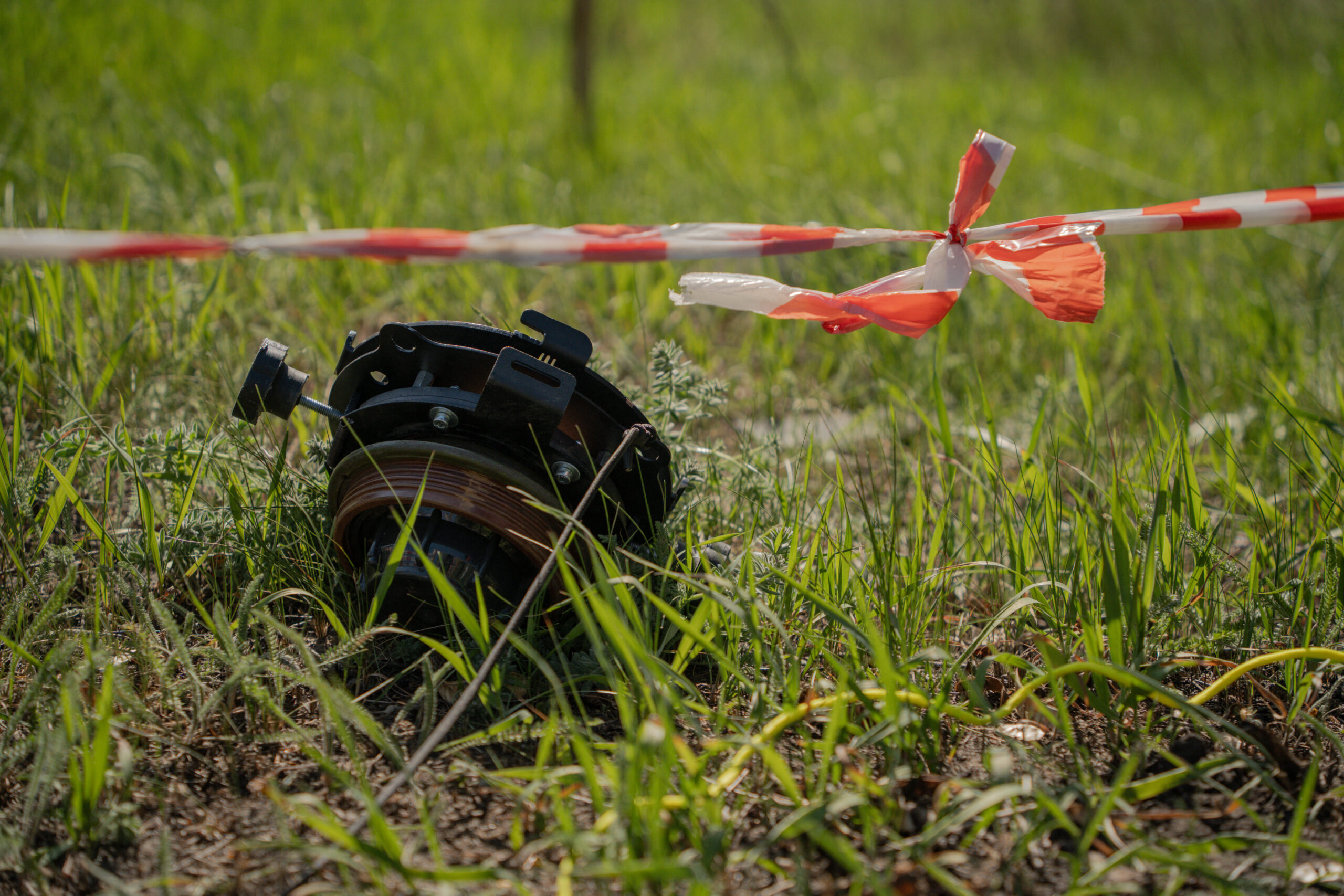
Landmines Continue to Kill
Ukraine may soon withdraw from the Ottawa Convention, following a decree signed by President Zelensky. The convention bans the use, production, stockpiling and transfer of anti-personnel landmines – weapons that, buried or hidden underground, often continue to maim and kill long after conflicts have ended. In Bosnia-Herzegovina, they are still claiming lives thirty years after the war ended.
Ukrainian President Volodymyr Zelensky recently signed a decree initiating Ukraine’s withdrawal from the Ottawa Convention banning the use of anti-personnel landmines. Signed in 1997, the Ottawa Convention prohibits the use, production, stockpiling and transfer of landmines – weapons that are buried or concealed underground and can continue to cause injury or death long after a conflict is over. More than 160 countries have signed the treaty, but the United States and Russia are not among them.
Ukraine’s Ministry of Foreign Affairs said the decision to leave the convention was due to Russia’s “armed aggression against Ukraine” and its “mass use” of such mines, which has given it an “asymmetric advantage.”
Kyiv also stressed that it has faithfully abided by the convention’s terms since its ratification in 2005, but that at the time of signature and ratification, “the current circumstances” – namely, the war with Russia – “did not exist and could not have been foreseen,”
– the Italian daily il Tempo reported
Roman Kostyenko, a member of parliament, commented on Facebook that the presidential decree still requires parliamentary approval to take effect.
“This is a step that the reality of war has long demanded. Russia is not a party to the convention and has deployed landmines on a massive scale against both our armed forces and civilians,”
– lamented Mr. Kostyenko, who is secretary of the Ukrainian parliament’s committee on national security, defence and intelligence.
Since the outbreak of the Russian–Ukrainian war,
Ukraine has become the most heavily mined country in the world. According to estimates by humanitarian organisations, it could take up to 30 years to clear the contaminated areas.
Previously, the Baltic states, Finland and Poland had also signalled their intention to withdraw from the Ottawa Convention. However, human rights groups have condemned such moves, warning of the long-term risks posed by landmines, which remain a threat to civilians for decades after conflicts end and often disproportionately harm children. Landmines are designed to detonate automatically when someone approaches or steps on them. Unexploded mines remain in the ground even after hostilities cease, posing a lasting danger to civilian populations.
Landmines Still Claim Lives, Even 30 Years After the War
Since the Balkan wars of the 1990s, 624 people have died after stepping on landmines in Bosnia – 53 of them were professional deminers, V4NA has previously reported.
According to a 2020 survey, around 180,000 landmines remain in Bosnia and Herzegovina, directly endangering the lives of 130,000 people in the region.
Sasa Obradovic, director of the relevant demining centre, told Radio Free Europe that 2030 is a realistic target for completing demining operations – but only if all concerned parties participate and provide assistance. The expert, however, expressed scepticism, noting that donors have shifted their attention to other conflict zones, leaving Bosnia with less international focus. It is estimated that in Bosnia-Herzegovina some 860 square kilometres of land – a significant area – is still contaminated with mines – accounting for nearly 1.69 per cent of the entire country.
“What makes landmines different from other weapons is that once they are laid and the soldier walks away, the mine cannot distinguish between a soldier and a civilian – between a woman or a child,” said Jody Williams, who coordinated the international campaign to ban landmines that ultimately led to the Ottawa Convention.
“While the use of a weapon might be justified militarily on the day of battle, … once peace is declared, the mine does not recognise that peace. The war ends. The mine continues to kill,”
– Ms. Williams said as she accepted the Nobel Peace Prize in 1997.
These are not the first weapons to be banned. Chemical weapons were outlawed after the First World War by the 1925 Geneva Protocol, following the horrific injuries caused by chlorine gas deployed by German forces.

